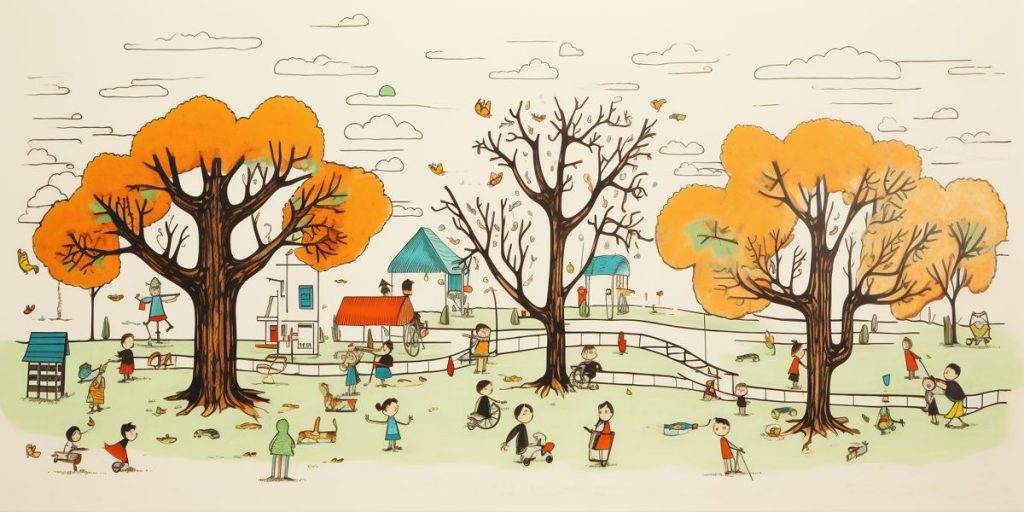Limassol is addressing the needs of unaccompanied minors by constructing new residential units that prioritize the children’s welfare and integration within the community. The project aims to avoid past issues of ‘ghettoisation’ and provide a safe and inclusive space for all children in need of state protection, irrespective of their background.
What is Limassol doing to address the needs of unaccompanied minors?
Limassol is constructing new residential units to support unaccompanied minors, focusing on small, community-based ‘family’ units and a day center. These facilities aim to integrate the children within the community, close to essential services, while avoiding the past issues of ‘ghettoisation.’ The project prioritizes the children’s welfare and inclusion, irrespective of their background.
Limassol’s Response to Child Welfare
The Deputy Welfare Minister of Cyprus, Marilena Evangelou, has recently addressed concerns regarding the construction of new residential units in Limassol designed for unaccompanied minors. Evangelou’s statement came following a protest by residents from the Yermasogeia and Ayios Athanasios areas, who expressed their disapproval of the introduction of social welfare structures in their neighborhoods.
The decision to build these units was met with criticism, primarily due to the lack of communication with the residents who would be affected by the new developments. Evangelou acknowledged that there was a shortfall in relaying information, admitting to a communication gap during an interview with CyBC.
A Closer Look at the Planned Structures
The plan includes three structures in the Limassol area, which came about after the state service’s unsuccessful attempts to find suitable existing properties. Evangelou stressed that the intention was not to erect large or obstructive buildings but to create small ‘family’ units and a center that would blend into the community.
One of the facilities is set to be a day center, analogous to one in Ayios Andreas, Nicosia, that has been operating seamlessly. The center is envisioned as a ‘second home’ for children, providing safe spaces for activities and services, including a place for underage victims of domestic abuse to deliver their testimonies.
Additionally, there will be two residential homes for children who are wards of the state, including one housing approximately eight teenage girls, staffed with live-in caregivers.
Building Community-Based Support
Evangelou highlighted the ministry’s commitment to avoiding the ‘ghettoisation’ of such facilities, which had led to negative outcomes in Paphos. The minister pointed to problems such as unrest, delinquency, crime, and institutionalization that arose from housing unaccompanied minors in large, isolated complexes.
The approach for Limassol is different, focusing on small, community-based accommodations to ensure that children who become wards of the state can be properly cared for. These facilities will be integrated within the community, close to essential services like schools, recreational activities, and police stations.
Evangelou reiterated that the term ‘children’ encompasses a broader group than just ‘unaccompanied minors,’ challenging the idea that these residences solely cater to irregular migrants or asylum seekers. The facilities are designed to serve all children in need of state protection, irrespective of their background.
Emphasizing Inclusivity and Community Welfare
The debate surrounding the new structures in Limassol reflects a broader dialogue on welfare, immigration, and community integration. Evangelou’s defense of the project underscores the government’s priority in creating a space where vulnerable children can enjoy a semblance of normalcy and security.
As the project moves forward, the ministry’s focus remains on incorporating these residential units into the community constructively and compassionately, ensuring that the best interests of the children are at the forefront of this initiative.
About the Journalist
Iole Damaskinos, with two years of experience at the Cyprus Mail, covers a range of topics when not delving into permaculture, health, and archaeology.
Stay Updated on Cyprus News
For those looking to stay current on various events, including sports highlights like the unbeaten streak of Black Caps and Royal in the Cyprus Autumn T20 League, and daily news briefings, the Cyprus Mail offers comprehensive coverage.
Information Resources
The Cyprus Mail provides information on essential services, ranging from emergency and medical services to utilities, transport, telecoms, and holiday schedules. For those seeking guidance on consumer rights, the Cyprus Consumers’ Association is also highlighted.
Explore Cyprus and Beyond
Whether it’s the latest in the world of business, sports, lifestyle, or global news, Cyprus Mail categorizes information for easy navigation. Explore sections dedicated to education, property, environment, and a rich opinion section featuring columns and letters.
Engaging with the Community
The website encourages users to sign up for newsletters, stay informed on the go with CM Videos, and explore career opportunities with Careers Express. To enhance user experience, the site also uses cookies, with detailed information on their use and management provided.
By engaging with these resources, readers can stay informed and connected with the local and international community, reflecting Cyprus Mail’s commitment to delivering a wide array of news and information.
- Limassol is constructing new residential units to support unaccompanied minors, prioritizing their welfare and integration within the community.
- The project aims to avoid issues of ‘ghettoisation’ and provide a safe and inclusive space for all children in need of state protection, regardless of their background.
- The decision to build these units was met with criticism due to a lack of communication with the affected residents.
- The plan includes three structures, including small ‘family’ units and a day center.
- The facilities will be integrated within the community, close to essential services like schools, recreational activities, and police stations.
- The intention is to avoid the negative outcomes associated with housing unaccompanied minors in large, isolated complexes.
- The facilities are designed to serve all children in need of state protection, not just irregular migrants or asylum seekers.
- The government’s priority is to create a space where vulnerable children can enjoy normalcy and security.
- The ministry’s focus is on incorporating these residential units into the community constructively and compassionately.
- The Cyprus Mail offers comprehensive coverage of events, including news briefings and sports highlights.

